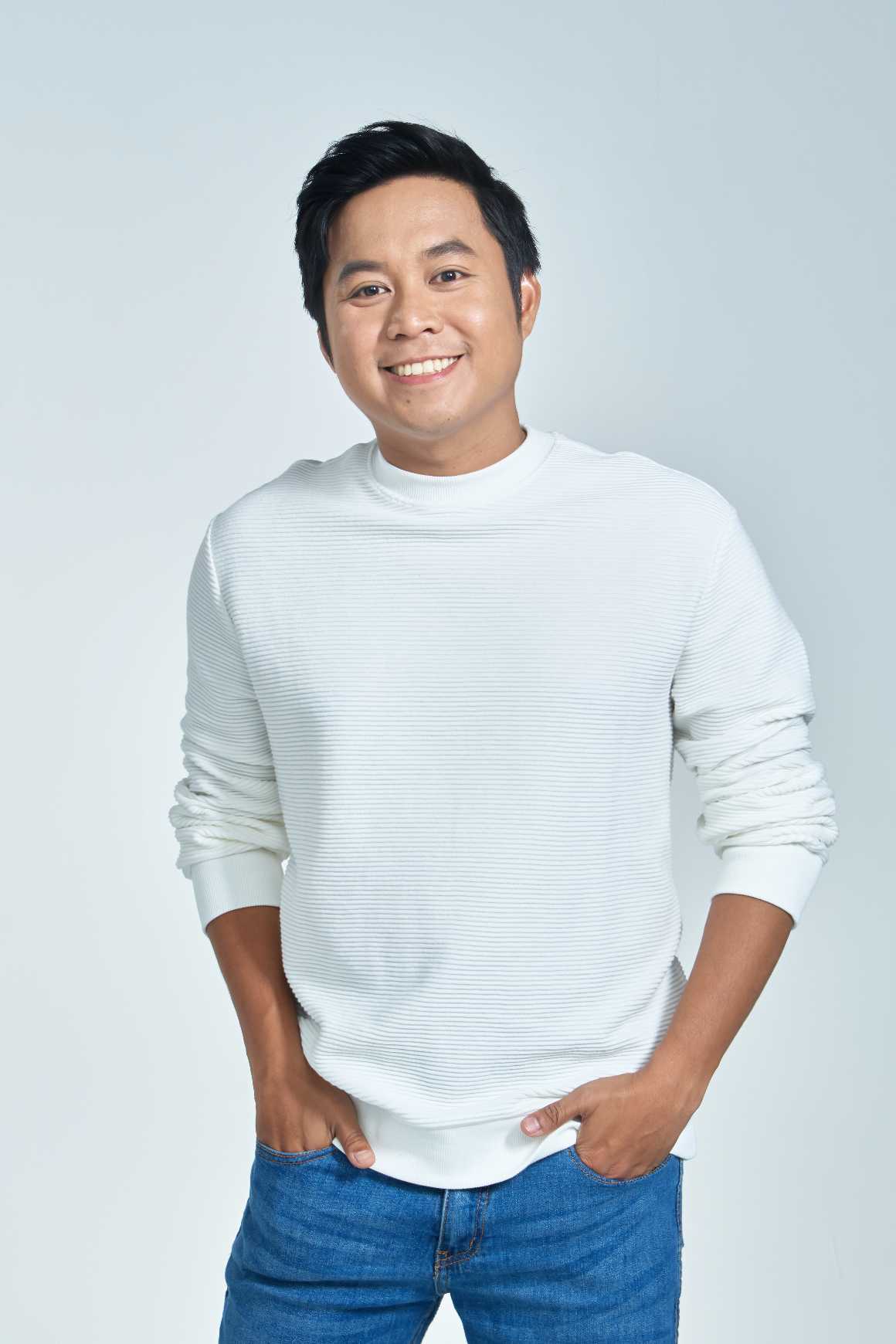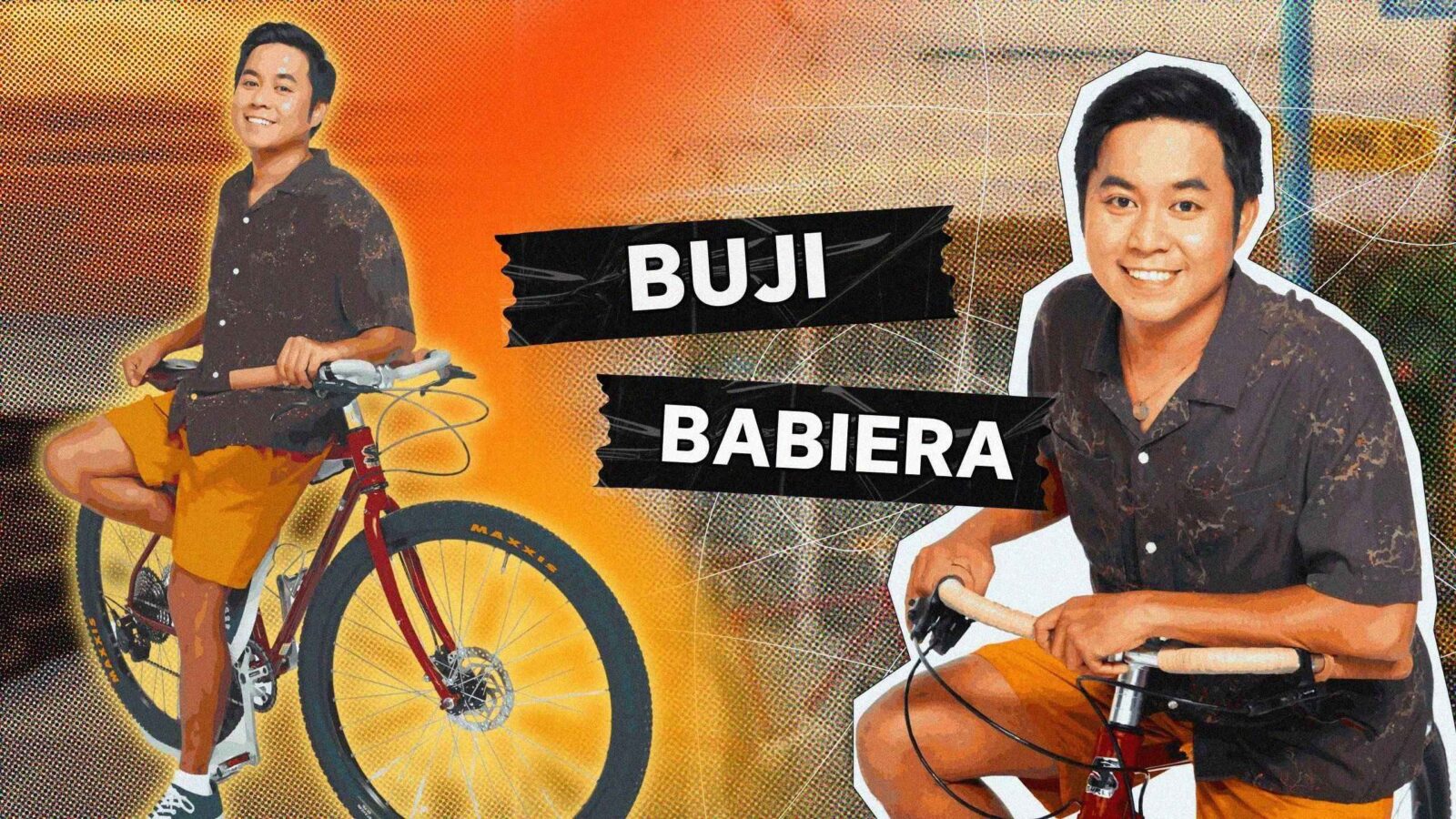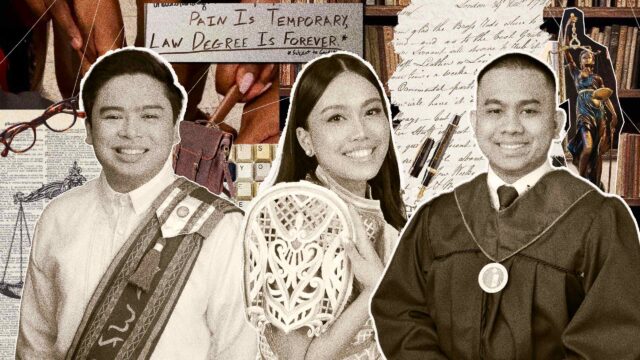Content creator Buji Babiera has his sights set on a more sustainable and environmentally friendly transportation system in the Philippines.
Related: Why Running Has Become Gen Z’s Newest Favorite Hobby
Traffic. It’s been a problem before, a problem now, and will probably still be a problem years from now. It’s sadly a defining trait of the Philippines, especially in Metro Manila, how bad traffic is. From a reliance on private cars and booking apps for many Filipinos (which is born, in part, from insufficient public transportation), a public transportation system that’s more of a hassle than a convenience for many commuters, and hostility from some Filipinos towards other transportation options like bicycle lanes, traveling in the Philippines is no walk in the park.
But amid seemingly never-ending standstill traffic, there are those pushing to make the Philippines easier for commuters. One such advocate is Buji Babiera. You may know the content creator as a living meme or for his storytimes on his TikTok account, but Buji’s feed goes beyond his bike rides. Over the years, the avid cyclist has been using his large platform to champion sustainable transportation and environmental change in the country, mainly through advocating for the wider adoption and acceptance of cycling in and beyond city streets.

Despite high-profile cases of Filipino cyclists facing harassment or worse, Buji remains committed to helping bring about a Philippines that’s more suited towards other forms of transportation, all while making the roads more environmentally friendly. “We are dependent on cars because that’s what people currently deem convenient, but if there are better and more practical options available, people will definitely choose to let go of using their private vehicles,” he tells NYLON Manila.
More than just shifting mindsets and helping roads be safer for Filipino cyclists, Buji is also aware that what changes he fights for has an impact that goes beyond the current generation. “I recognized that we have a responsibility to preserve our environment for future generations, which is why I continue these advocacies—for myself and for young people.”
Get to know more about Buji, his cycling advocacy, championing sustainable and environmentally sound programs, and more in our interview with the content creator below.
How did you get into cycling?
My father taught me how to ride a bicycle when I was young, but I’ve only done it in our village or in touristy places. Five years ago, if you’d asked me, I would have told you that you’d never make me bike in the city. I’ve been a wanderer all my life, and I used to enjoy driving around before the pandemic.
When the pandemic hit, being stuck at home became too stressful. I needed to go out and have personal interactions with friends. Since the virus was still a concern, the safest way to achieve this was to ride a bike with a friend—there’s social distancing, and I could roam around more easily, as the lockdowns were more considerate of bicycles than cars. A week after my friend invited me to try his bike, I bought my own, and I have been cycling ever since.
What’s your favorite thing about cycling?
On my first bike ride during the pandemic, I felt a real sense of freedom. I enjoy traveling and the adrenaline that comes with it, and cycling gave me the same feeling. I also appreciate the fitness aspect—it’s a great physical activity that benefits my health and strength. However, there were more surprises to cycling than I had imagined. I never thought it would be such a social activity—I’ve met some of my closest friends through biking.
But the most surprising aspect, for me, is its sustainability. I strive to live a more sustainable lifestyle, but before cycling, I thought I couldn’t give up driving my car. Now, I’ve learned that biking—perhaps one of the most sustainable forms of transport—is possible. Cycling has become my main mode of transport, and I have drastically reduced my car usage.
Why do you think more people should try cycling?
The common benefits of cycling have been mentioned over and over: it is healthy, efficient, and practical. But for me, people should cycle because it is fun. I continue to use my bike because I enjoy it. After all, you’ll never convince me to do something that bores me.

How would you describe the current situation of what it’s like to be a cyclist in the Philippines?
Like I said earlier, you could never have convinced me to ride a bike in the city before the pandemic. My old self would have thought it was unsafe. I understand that safety is usually the main concern for people when it comes to cycling. However, my friend convinced me to ride a bike during the quarantine because I felt very safe biking on our roads. Back then, our streets were practically big bike lanes.
Now that we’re back to normalcy, I recognize that it’s more difficult to ride a bike. There are more motorized vehicles that pose a threat to the safety of cyclists, as well as to pedestrians and other active transport users. The smoke has been terrible lately, too. But despite these challenges, I believe that biking in our cities is still doable.
The pandemic has brought bike lanes to our roads—many painted and some protected. More importantly, cyclists are now more visible, and drivers have begun to recognize our presence and the need to be more cautious to keep us safe. The mentality has changed, and it’s safer now compared to pre-pandemic times.
Why do you think there’s a noted hostility towards cycling in this country?
Change can be difficult, and it’s human nature to require adjustment. However, adjusting is usually never easy. Based on my observations as both a regular cyclist and a driver, we all want to be safe on the road, but we’re accustomed to the status quo where cars dominate. Now that there are bikers and active transport users who also have the right to use our roads, I imagine there’s a need for familiarity, and some reactions may involve hostility toward this change.
I believe that people need to have empathy, even when using our roads. We all want to be safe, and it’s important to remember that greater responsibility falls on those who have more privilege on the road. Motorized vehicles are faster and have a greater capacity to cause harm, so I believe they need to adjust to accommodate more vulnerable users.
The Philippines, especially Metro Manila, is a very car-centric society. What do you think can be done for people to stop seeing private cars as the only way to get around the city?
Metro Manila needs to recognize the efficiency of active transport as a way of moving around the city and as a more sustainable form of transportation, supported by a strong public transportation system. It’s good to look at cities that have fully transformed their environments into more livable places, such as Amsterdam, Utrecht, and recently, Paris. However, the reality is that this won’t be possible without proper infrastructure in place. Build the infrastructure, and people will use it.
We are dependent on cars because that’s what people currently deem convenient, but if there are better and more practical options available, people will definitely choose to let go of using their private vehicles. The power to enact this change primarily lies in the hands of those in leadership.

If there’s one misconception people have about cycling that you’d like to debunk, what would that be?
Many people think that only a few individuals bike in the Philippines, but this is not true. In a recent SWS survey, 1 out of 3 Filipinos owns a bicycle. That’s 36%, or around 10 million Filipino households, with a bike. The same survey also shows that the ratio of car owners to bicycle owners in the Philippines is 4:1. The myth that Filipinos don’t cycle anymore and that it’s only a thing of the past is used to downgrade active transport and is often invoked in campaigns to remove safe and efficient protected bike lanes in the country.
Where do you think your drive to be an advocate for the climate and sustainable transportation comes from?
All of these advocacies started because I have been personally inconvenienced. Before pushing for these causes, I experienced the stress of constantly getting stuck in traffic while in a car, having my plans canceled due to unpredictable weather, and facing issues because of flooding. It all began with my selfish thoughts until I realized that collective action and society’s push are needed to mitigate these problems. Eventually, I recognized that we have a responsibility to preserve our environment for future generations, which is why I continue these advocacies—for myself and for young people. I’ve also been motivated to advocate because I’ve made friends through this work, and that’s probably an extra push to keep going.
Do you have hope that the Philippines will become more inclusive and welcoming towards cycling?
I’ve heard many times from strangers and even from peers that the Philippines is hopeless. But as someone who has been on the ground fighting for these causes and witnessing changes and conversations between the people and those in power, I remain hopeful. My hopes are high because more people, especially young ones, are joining our causes and believing in our fight for the climate, the environment, and inclusive, sustainable mobility.
I am hopeful because the infrastructure fought for by earlier advocates has materialized and is still being enjoyed by cyclists, and there are promises to further improve it. I am hopeful because other cities have managed to convert their car-centric environments into places with inclusive and more sustainable transportation systems.

If people in power were to read this story, what would you like to tell them about improving the cycling and overall commuting conditions in the Philippines?
I’d like to thank them first for the current cycling infrastructure and the improving transport system that we’ve seen in the past few years here in the Philippines. I know they are aware that there is still a lot more to be done for the Philippines to achieve comfortable commuting conditions. I hope they continue to listen to their constituents and work towards convenient and efficient ways of moving.
I also hope they learn from and apply the best practices of other countries that have successfully implemented more efficient travel systems for their citizens. Most importantly, with the decisions they make, I hope they consider the vulnerable users—those who need to be safer, such as PWDs and children, among others.
What advice can you give to Gen Z who are thinking of trying out cycling for the first time?
Do it with your friends. Cycling is a fun activity and a great form of transport, and you’ll feel more motivated if you do it with others who will make the experience memorable and enjoyable.
Photos courtesy of NYMA
Continue Reading: Why Underconsumption Core Is The Next Trend That Should Be On Your Radar





